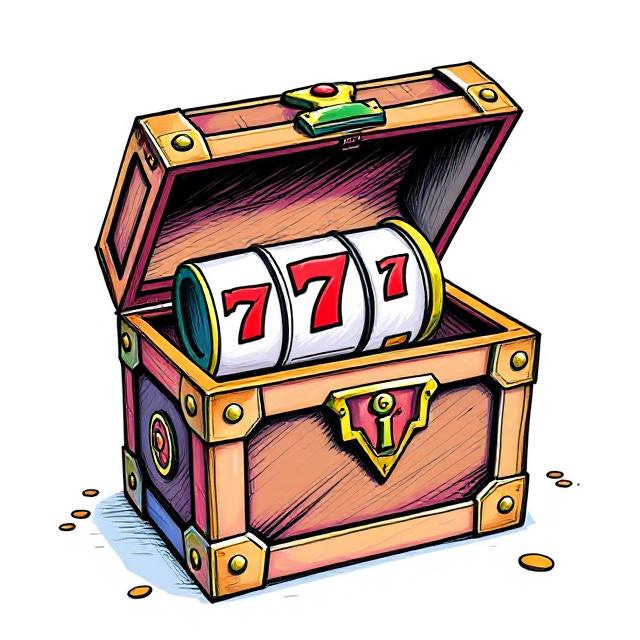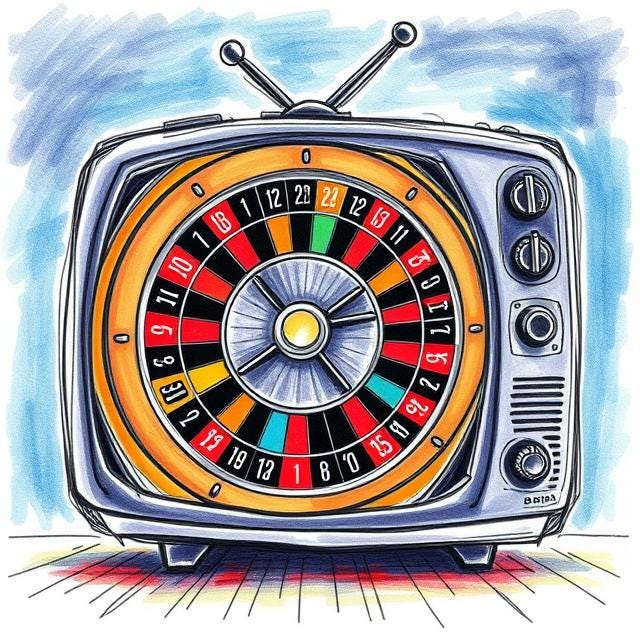You bet!
Gambling harms and a way out
It’s pretty extraordinary how much of our economy is built on addiction.
Every day, companies are finding new ways to give you a surge of happy chemicals. Tech companies find new ways to make their apps trigger your dopamine receptors. Tobacco companies get a new generation hooked on strawberry-flavoured vapes. Food manufacturers stuff more sugar and chemicals into their products so that you can’t put them down.
When these dopamine and serotonin centres in our brain light up, we get hooked on the feeling and keep going back for more. Winning at a video game, clicking ‘buy’ on Amazon, popping a tube of Pringles, finding a funny TikTok video. These companies have entire teams whose sole focus is making sure you can’t pull away.
And it starts the moment you’re born. The makers of hit baby TV show Cocomelon have a data and analytics team that tests every aspect of the show to ensure babies are absolutely hooked. They employ a menacing-sounding test called ‘the Distractatron’, where they place babies in front of a screen playing Cocomelon, and a ‘Distractatron’ screen playing videos of mundane, everyday scenes. Every time the child looks away from Cocomelon at the other screen, the experimenters note it down.
The result? Cocomelon is like crack for babies.
 Tiktok failed to load.
Tiktok failed to load.Enable 3rd party cookies or use another browser
The company that makes Cocomelon has more than 300 employees, dedicated to keeping babies hooked.
And once you grow up, even more companies are in the business of getting you addicted.
🍒🍋🍒
There are more than a million problem gamblers in the UK. Until recently, the Gambling Commission had insisted the number was much lower - much to the joy of the betting industry.
These companies are the tobacco firms of our age, producing a highly addictive substance, relentlessly marketing it, and frantically playing down their harms.
The number of calls to the charity GamCare (which, incidentally, is funded by the gambling industry) has increased by 25% in the last year alone. NHS gambling clinics have seen a 130% increase in referrals in the last year.
Smartphones have made gambling easier and more ubiquitous, but so have new forms of gambling that tap new markets. In-app purchases are often a form of gambling in disguise, and they’ve enabled gambling to reach even more consumers.
There’s never been more women gambling, for example, because of the rise of smartphone games like Candy Crush that have tapped into some psychological phenomenon for women aged 25-55.
Under 18s, who are eschewing alcohol and cigarettes, are gambling in high numbers through in-game purchases. Almost a third of 11-16 year olds have paid money to open ‘loot boxes’ in video games that reward the user with a random item. The government has still not banned under 18s from these types of transactions, despite issuing guidance to the video game industry that it is dangerous for kids.
In-app purchases have been an increasingly common part of games since the noughties, but the area still remains largely a wild west. Unlike traditional gambling companies, where problem gamblers can put limits on their spend and companies have a duty to monitor their players, these apps can get away with offering almost no protection to consumers that, in some cases, can spend thousands and develop gambling addictions.
💎💎🍇
Traditional gambling, despite more regulation, is not much better.
You’ve no doubt seen adverts for gambling companies - but if you are a sports fan, or a young man, you’ve probably been inundated with them. During the opening weekend of the last Premier League season, there were 29,000 gambling ads: that’s just in one weekend.
The law was loosened on gambling ads in 2005, unfortunate timing given that - years later - everyone would have unlimited, unfettered access to gambling and betting via smartphones.
There are essentially just six rules for gambling advertisers today, and nothing to restrict their prevalence. Despite attempts to stop gambling ads reaching children, 96% of 11-24 year olds have seen a gambling advert in the last month.
Marketing is the strongest weapon for gambling companies, and a way to entice in new customers with free bets or no-lose deals: especially because a big win early in your gambling career is more likely to result in a gambling addiction. Gambling companies know this, and that’s why they spend more than 10% of their revenue on marketing and ads.
Smoking ads were banned in the UK in 2003. The effect, according to recent research, has been a 20% lower prevalence of smoking and a 37% lower risk of smoking uptake. More regulation is needed to limit the number of gambling ads that people see, give them the power to block gambling adverts online, and particularly protect children and young people from these adverts.
But advertising is just one way gambling companies in a mobile-first world keep their punters coming back.
I’ve written before about ‘dark patterns’, the techniques used by tech companies to keep us hooked on their products. The government should get better at restricting the use of dark patterns across tech, and forcing the use of what I call ‘benevolent dark patterns’ that have the opposite effect.
In gambling, dark patterns include minimum deposits, difficult withdrawal processes, autoplay features and hiding lost bets. Benevolent dark patterns might include slowing down spinning slot machines (a new law introduced in 2021), forcing a break between games, or showing a player’s total lifetime losses prominently.
The gambling companies are creative when it comes to introducing these patterns - regulators need to be more creative in stamping them out, and forcing positive patterns.
🍀🍀🍀
Gamblers always lose. Statistically, almost no one beats the house. If they did, gambling wouldn’t be a multi-billion pound industry. So all of us, gambling addicts and hobbyists alike, are just shovelling our hard-earned money into the fire.
But gambling is fun and harmless for the vast majority of people. Like so many other addictive substances that we interact with every day, governments have to walk a tightrope between regulation for the few and accessibility for the many.
All sorts of things are addictive: Cocomelon, heroin, TikTok, vapes, crystal meth, alcohol. The priority when setting this legislation has to be balancing the harms against the benefits, and curtailing the addictive qualities as much as possible. That frees people up to make informed choices, with clarity and intent, about how they want to wager their money, their time and their health.




